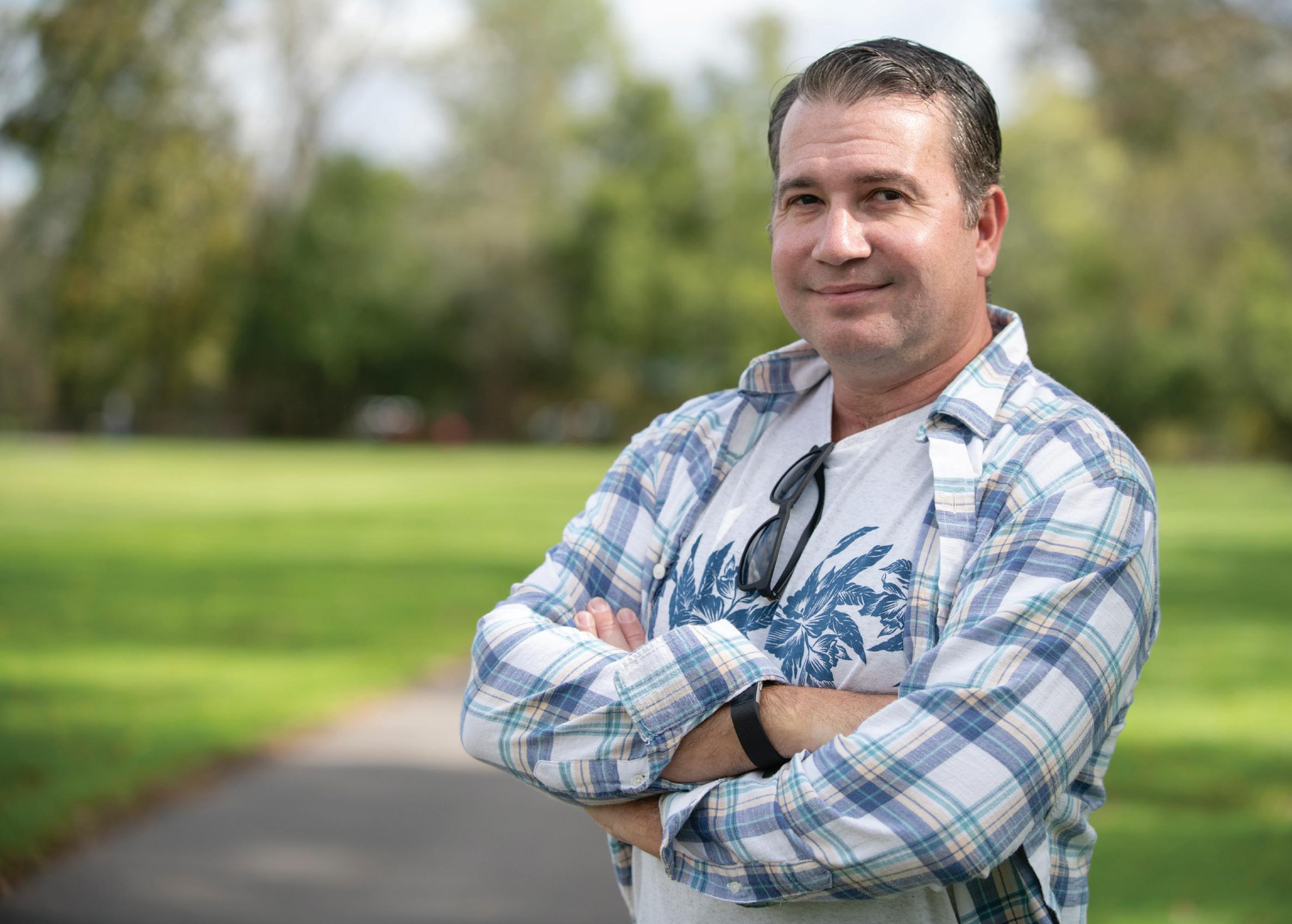Q&A
ASK THE DOCTOR
THE LATEST ON LIVER AND COLORECTAL CANCER
ESHAN PATEL, MD
GREATER AWARENESS OF THESE GASTROINTESTINAL CANCERS CAN SAVE LIVES.
I
f you’re middle-aged or older, you’ve likely pondered the specter of colorectal cancer far more than that of liver cancer—with good reason. Colorectal cancer is diagnosed at more than twice the rate of liver cancer in the United States each year and can be detected through widely available screening tests such as colonoscopy, says Eshan Patel, MD, a board-certified hematologist/oncologist at Robert Wood Johnson University Hospital (RWJUH) Somerset’s Steeplechase Cancer Center and a member of RWJBarnabas Health Medical Group. What’s more, colorectal cancer is becoming more common among younger adults. But liver cancer prevalence has more than tripled since 1980, with death rates doubling in that time, according to the American Cancer Society. Both cancers deserve more awareness as fresh trends emerge, says Dr. Patel. He explains
RWJBarnabas Health and the Steeplechase Cancer Center at Robert Wood Johnson University Hospital Somerset, in partnership with Rutgers Cancer Institute of New Jersey—the state’s only NCI-Designated Comprehensive Cancer Center—provide close-tohome access to the latest treatment options. For more information, call 844.84CANCERNJ or visit www.rwjbh.org/beatcancer.
what you need to know about these gastrointestinal malignancies and how they’re detected.
Why is it important for men and women to detect colorectal cancer early?
If you’re diagnosed with colorectal cancer in its early stages, you have a high chance of being cured. A colonoscopy can detect growths called polyps that usually develop into cancer but can be removed during the procedure. So by screening early, you’re improving your odds of surviving cancer or avoiding it altogether.
At what age should people begin screening for colorectal cancer, and why have recommendations changed?
National recommendations suggest starting screening at age 45 for those at average risk. For those with a family history, such as a parent or sibling who had the disease, screening should start at age 40 or 10 years prior to the family member’s age at diagnosis, whichever is earlier. The recommended screening age changed from 50 to 45 in recent years because data showed many patients were being diagnosed in their early 40s.
What are some symptoms of liver cancer? Are there ways to screen for it?
In its early stages, liver cancer may not cause any symptoms; nonspecific symptoms such as abdominal pain and distension usually happen in later stages. There’s no screening test for the general population, but for people at high risk—including those with a history of hepatitis, alcoholic liver damage or fatty liver—blood tests and ultrasounds can look for liver cancer.
Should any ethnic groups be particularly concerned about colorectal and liver cancers?
African Americans have the highest colorectal cancer rates of all ethnic groups, though it’s not clear if that’s due to biological variations, different access to screening or other factors. Liver cancer is a bit more prevalent in the Asian American population, which has a higher rate of hepatitis infections overall.
What makes the Steeplechase Cancer Center at RWJUH Somerset the right choice for cancer care? Steeplechase Cancer Center offers the best of both worlds: compassionate, community care in a friendly environment along with great academic support. Our partnership with Rutgers Cancer Institute of New Jersey—the state’s only NCI-Designated Comprehensive Cancer Center— provides close-to-home access to the latest treatment options.
Robert Wood Johnson University Hospital Somerset
RWJUHS_ColonLiver_Winter22_Final_10.5.indd 17
|
RWJBH.ORG/SOMERSET
| 17
12/9/21 2:29 PM











